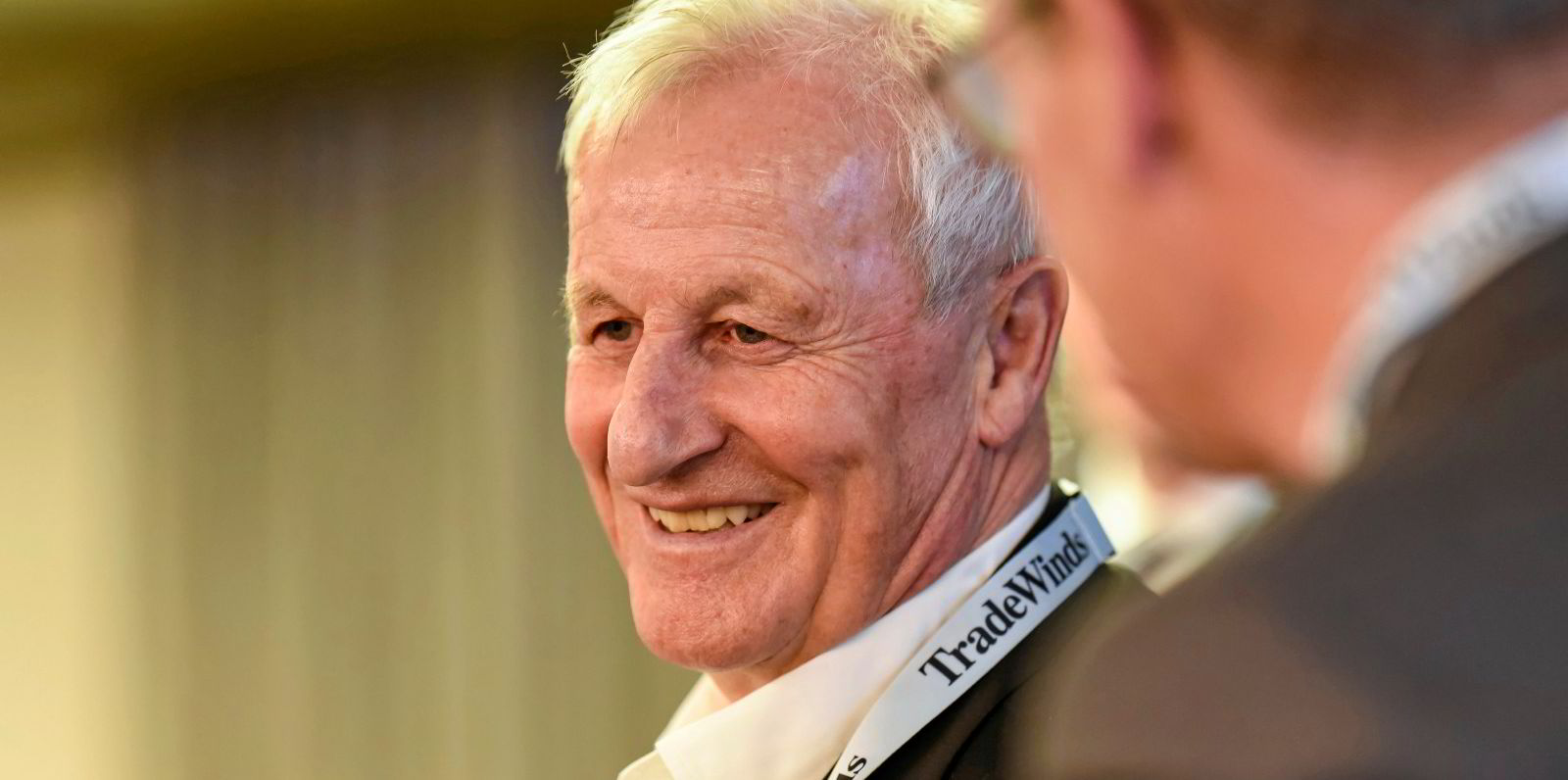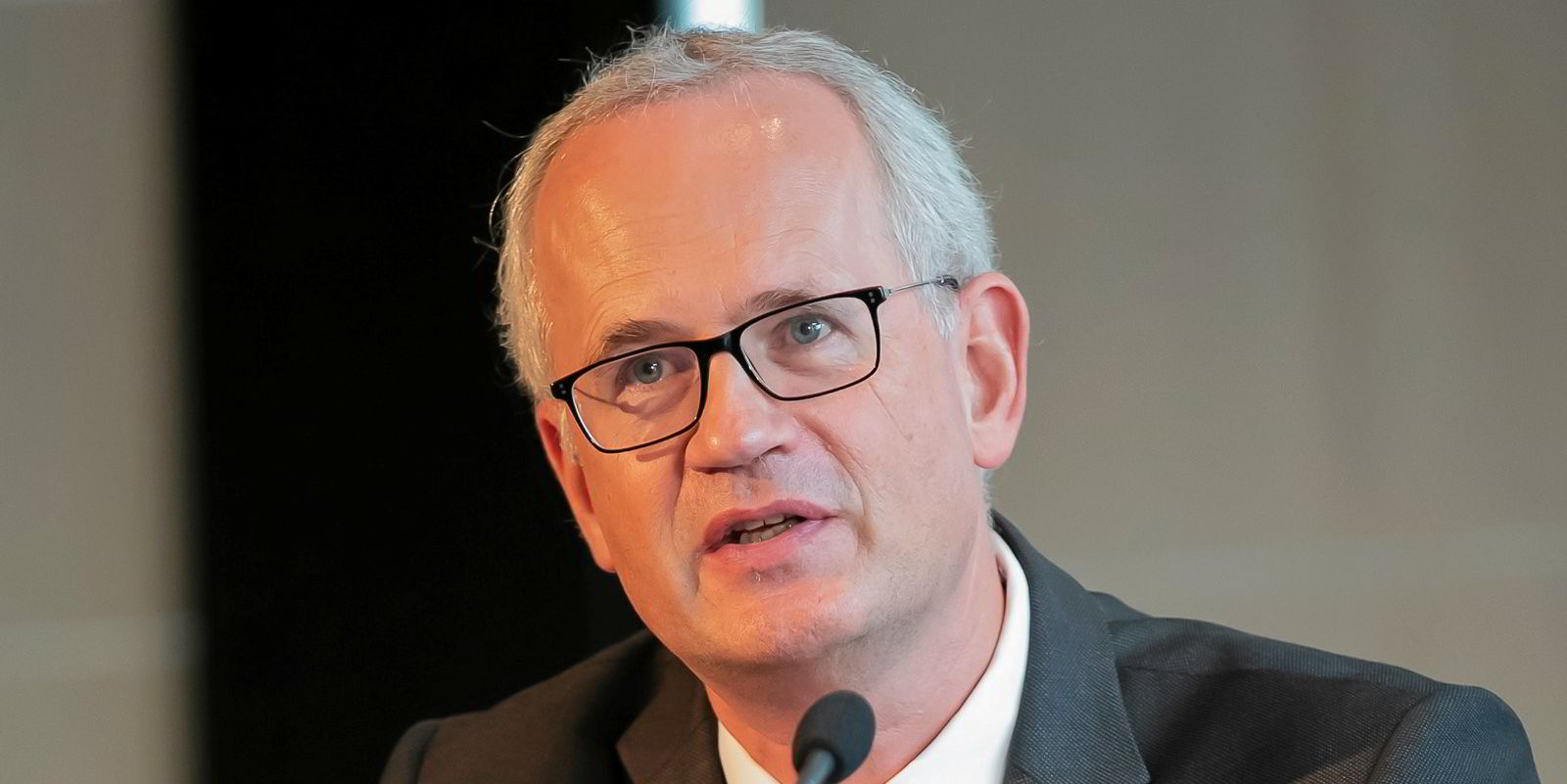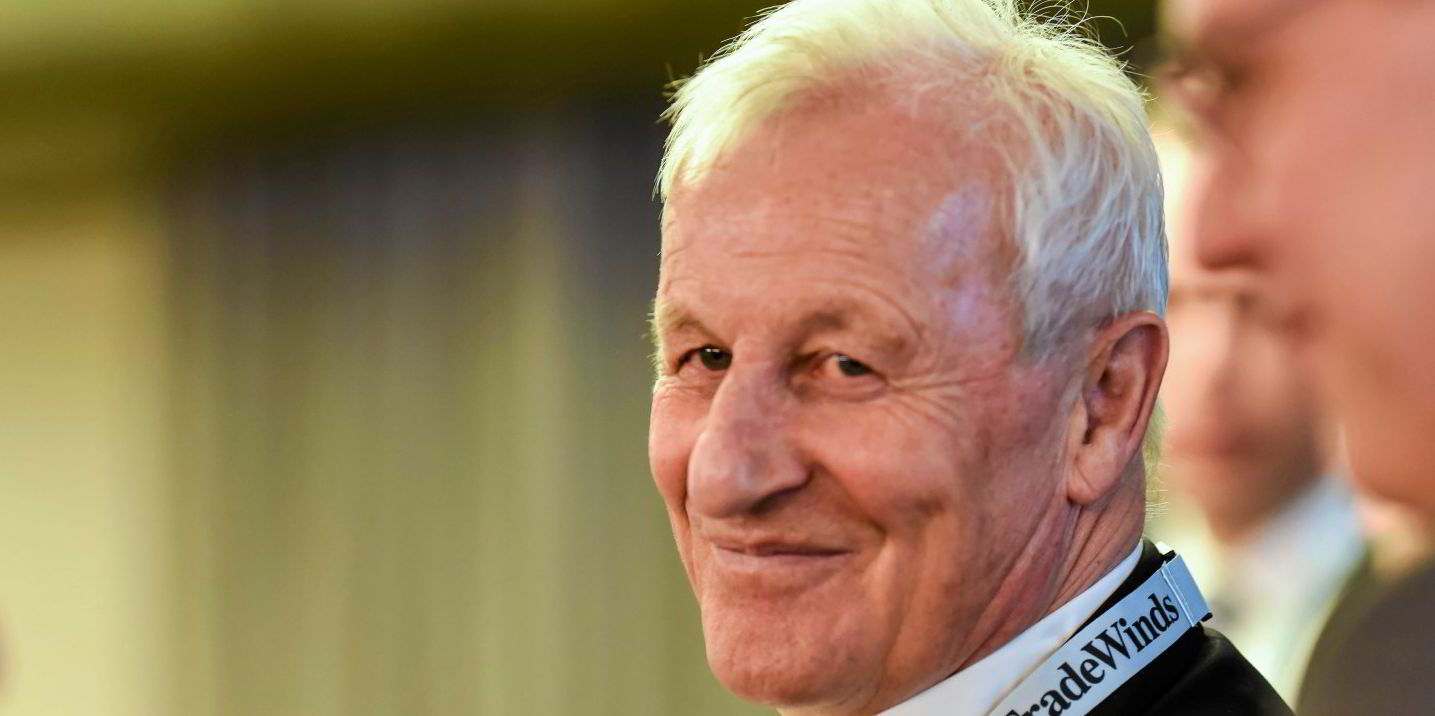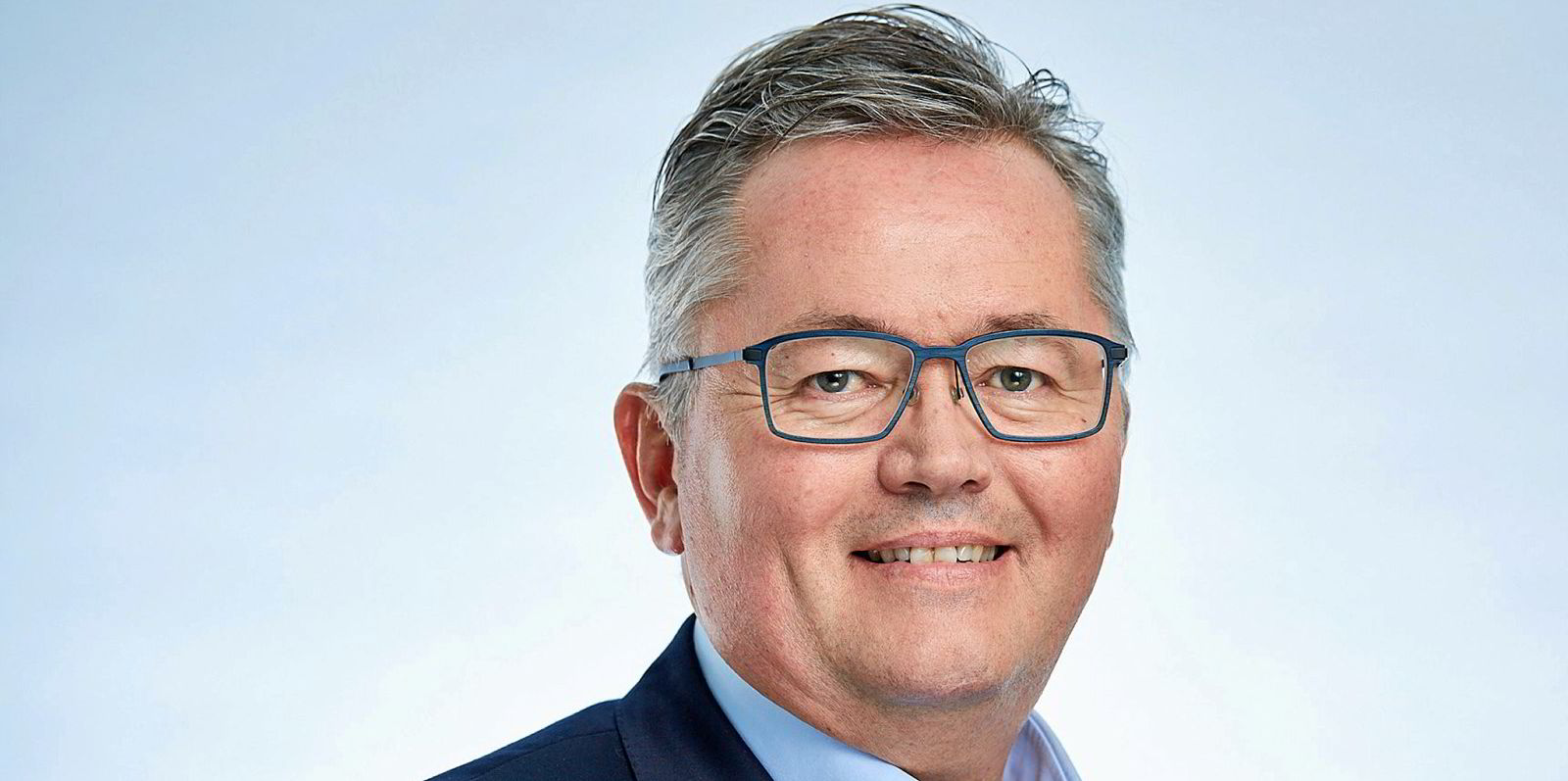Container shipping veteran Claus-Peter Offen believes the worst is to come for boxship markets.
In his view, today’s market bears many of the hallmarks of the run-up to the financial crisis in 2009.
Supply is poised to grow at a time when demand is ebbing away.
That suggests that container markets have further to fall — and Offen has no desire to invest in a falling market.
So it could be years before his company makes further investments in new or secondhand tonnage, he told TradeWinds.
Offen, who is chairman of the supervisory board of Germany’s largest container ship tonnage provider, blames the astonishingly high container shipping orderbook for the gloomy prognosis.
Unlike most liner operators and some tonnage providers, the Hamburg-headquartered Offen Group held back from investing in additional tonnage during the greatest boom in container shipping history.
The sharp fall in recent weeks in container freight rates and charter markets has left Offen feeling vindicated.
Nothing lasts forever
He described the astonishing rise in container markets in the two years as an “extraordinary situation”.
“For me, it was certain it would not last forever. Shipping markets never last forever,” he said.
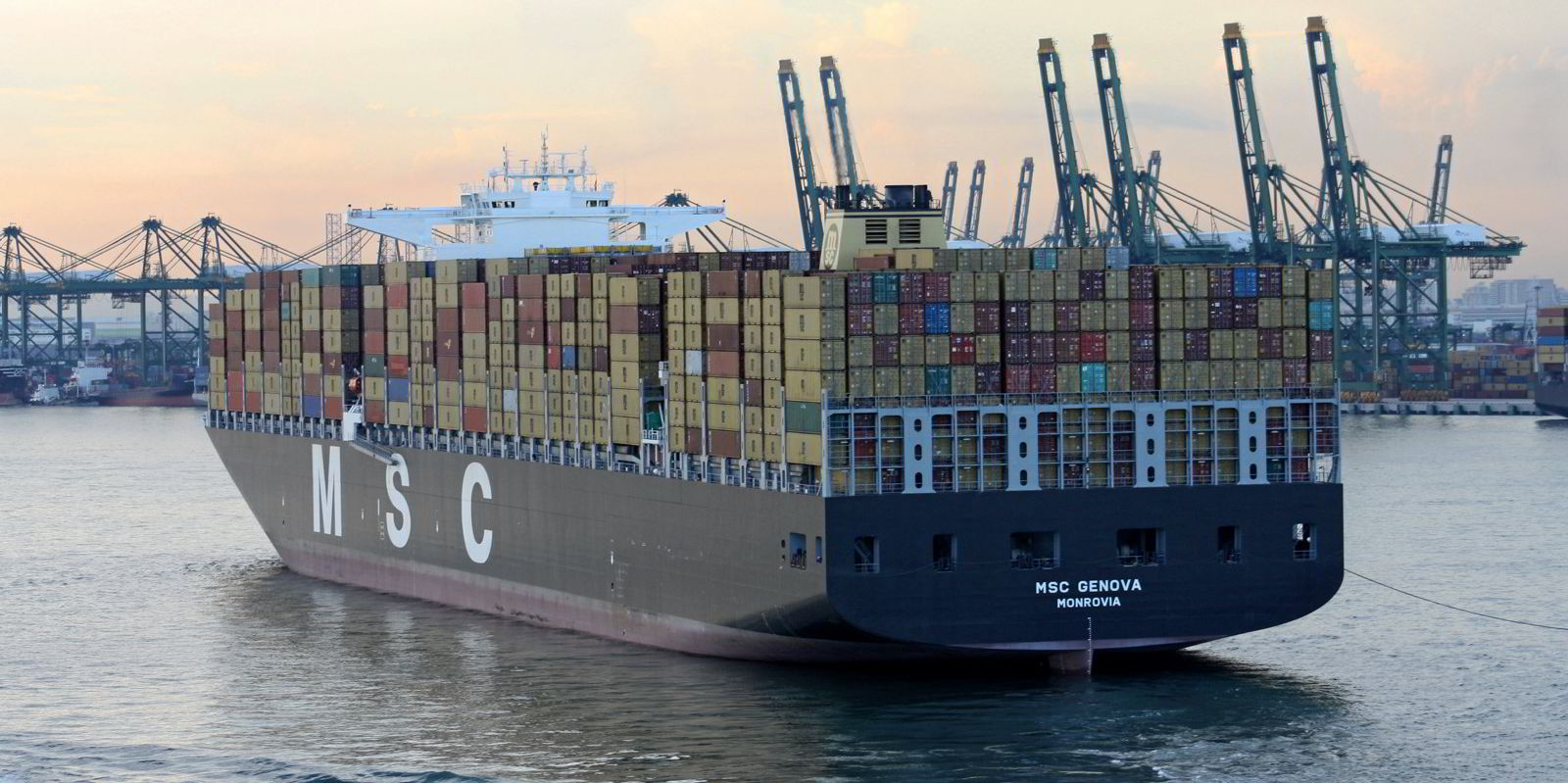
“It was not and is not a good time for new investments in our container industry.”
The philosophy applies to newbuildings and secondhand boxships, he said.
That did not prevent liner operators and some tonnage providers from embarking on an enormous wave of newbuildings.
The orderbook accounts for more than 30% of the container shipping fleet on the water.
To the beginning of December, 334 container ships of 2.5m teu have been ordered this year, on top of a record 4.3m teu ordered in 2021, according to Clarksons.
That 2.5m teu is more than double the annual 1.2m-teu average from 2010 to 2019.
The staggering amount of tonnage to be delivered does not bode well.
“It reminds me a little bit of the days in 2006, 2007, 2008 and 2009 — when the world fleet was growing far too much for the [demand] growth that could reasonably be expected,” Offen said.
“We don’t see the growth coming anywhere near strong enough.”
Continued fall
The impact has been reflected in falling demand and freight rates, which have dropped faster than had been expected following the impact of the war in Ukraine on the global economy.
“We are very happy we didn’t do anything,” he said.
“We have been taking this wait-and-see position because we were worried that markets would fall considerably in the near future.
“And this happened — much stronger and much faster than expected.
“And this fall could still continue.”
Offen feels his own company, which operates with a fleet of 35 vessels up to 14,000 teu, can continue to ride out the deteriorating state of the markets.
“We are happy that maybe with very few exceptions our vessels are still on long-term charters,” he said.
Around half of the vessels are built after 2010, and many have charters through to 2029.
The container ships that the company acquired from Munich-based Conti Reederei in 2017 still have four years’ average at reasonably good rates.
Complicated market
The charters give the Offen management team time before they need to take a decision on where to invest.
Offen stepped down as CEO in January, handing day-to-day responsibility to former Hamburg-Sud boss Arnt Vespermann.
He remains chairman of his company’s supervisory board, where he signs off major strategic decisions.
But decisions on which engine types, fuel choices or whether to revive the possible listing on a stock exchange will be left to his successors.
Offen believes the financial position of the liner operators means they currently have fewer needs for long-term charters.
“We may go into other tonnage; we have to see how other markets are developing. I think the container market will get more complicated with the reduction of long-term charters.”
He expects it will take time to decide on technical features such as which fuel or engine to use for future investments.
“There are so many things moving, I am certain that in five years we will know more,” he said.
“Generally, I feel we have no desire to do anything in the next couple of years. We’ll just sit there and wait and see what the developments are.”
